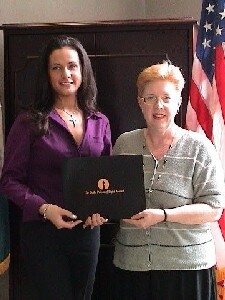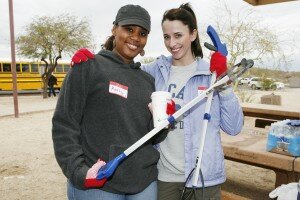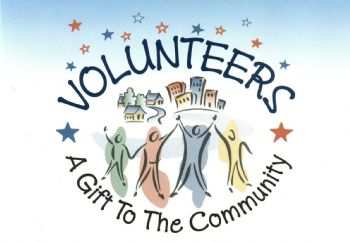 We often talk about ways to recognize volunteers, which is incredibly important. However, there are others in the volunteer realm who deserve recognition as well. Show the value that your organization places on volunteer engagement by recognizing staff members who engage and work with volunteers. Recognize your organization’s staff members who partner with volunteers with these tips.
We often talk about ways to recognize volunteers, which is incredibly important. However, there are others in the volunteer realm who deserve recognition as well. Show the value that your organization places on volunteer engagement by recognizing staff members who engage and work with volunteers. Recognize your organization’s staff members who partner with volunteers with these tips.
- During any formal recognition ceremony or staff meeting, be sure to recognize the staff member who works with the volunteers as well. This small action reinforces your organization’s emphasis on the partnership of volunteers and staff to carry out the your mission.
- Highlight excellence in staff engagement when any employee has:
-
- Thought up new ways to thank or recognize volunteers
- Created an innovative volunteer program
- Done an incredible job supporting and working with volunteers
- Be sure to ask for staff input in evaluating and designing volunteer participation. Who knows better what is needed than your organization’s own dedicated staff?
- A personal touch is always appreciated. Informally ackwnoledge an employee’s support of volunteers by thanking them in person or writing them a personal note. Thoughtfulness goes a long way.
- Feature the staff’s work in any promotional materials or information to be sent to your organization’s board.
- Share staff support of volunteers via electronic means as well. Your organization’s blog, website, or even a staff-wide email could be deemed appropriate.
- Consider asking volunteers to nomiate a “Most Supportive Employee” in their efforts and present that award at an event.
- In the same vein, consider asking volunteers to share their appreciation for staff, perhaps even in a silly way. There is rarely a bad time for a volunteer skit!
How does your organization recognize staff member who support volunteering? Let us know in the comments below.

 Recognition is an important part of any volunteer program. People are motivated to volunteer for different reasons: to help others, to make a difference, to better themselves, to meet people, to get to know their communities. Whatever motivates them to serve, they will appreciate being appreciated. Take the time to celebrate people doing extraordinary things through service and honor the individuals who dedicate themselves to taking action and solving problems in their communities with these tips.
Recognition is an important part of any volunteer program. People are motivated to volunteer for different reasons: to help others, to make a difference, to better themselves, to meet people, to get to know their communities. Whatever motivates them to serve, they will appreciate being appreciated. Take the time to celebrate people doing extraordinary things through service and honor the individuals who dedicate themselves to taking action and solving problems in their communities with these tips. 22. Provide scholarships to volunteer conferences or workshops.
22. Provide scholarships to volunteer conferences or workshops. An effective recognition program with the right mix of formal and informal recognition systems and that truly functions as an integral component of a volunteer program can honor and motivate volunteers for their contributions. (Formal volunteer recognition includes certificates, plaques, pins, or dinners to honor volunteer achievement. Informal recognition occurs in the daily interchange between volunteers and the organization when its staff conveys appreciation for the volunteers’ work.)
An effective recognition program with the right mix of formal and informal recognition systems and that truly functions as an integral component of a volunteer program can honor and motivate volunteers for their contributions. (Formal volunteer recognition includes certificates, plaques, pins, or dinners to honor volunteer achievement. Informal recognition occurs in the daily interchange between volunteers and the organization when its staff conveys appreciation for the volunteers’ work.) Who doesn’t look at the end-of-summer holiday and use it as an excuse for squeezing in one last bit of summer? From barbecues to pool parties to fireworks shows, people come together to celebrate the symbolic end of summer.
Who doesn’t look at the end-of-summer holiday and use it as an excuse for squeezing in one last bit of summer? From barbecues to pool parties to fireworks shows, people come together to celebrate the symbolic end of summer.
 Michael Nealis is the Interactive Strategy Coordinator at
Michael Nealis is the Interactive Strategy Coordinator at 




